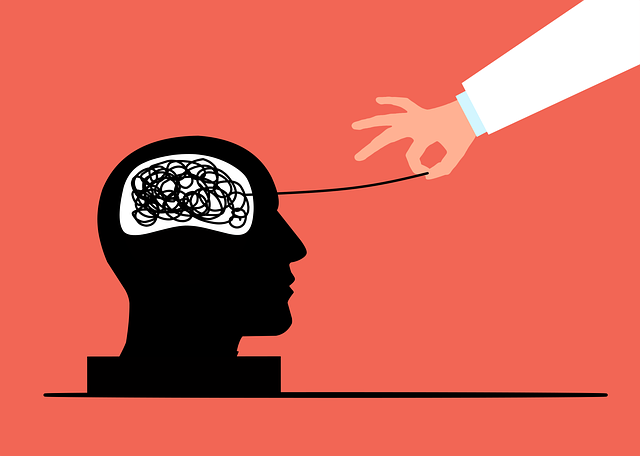Lakewood Eating Disorders Therapy emphasizes the vital link between social skills and mental well-being in eating disorder recovery. Through a holistic approach combining mindfulness, confidence-boosting techniques, and specialized training, clients improve social interactions, gaining emotional intelligence and strengthening connections. This supportive environment equips individuals with tools to navigate diverse social contexts, manage stress, and reduce stigma, ultimately enhancing their mental health outcomes.
Social skills training is a powerful tool for managing mental health conditions, particularly eating disorders. This article delves into the intricate relationship between social interactions and mental well-being, focusing on strategies tailored for individuals with eating disorders. We explore specific challenges they face in social settings and present effective techniques from Lakewood Eating Disorders Therapy, demonstrating how these skills can be honed and integrated into daily life. By understanding and addressing social impairments, recovery journeys can be significantly enhanced.
- Understanding the Link Between Social Skills and Mental Health
- Identifying Challenges in Social Interactions for Individuals with Eating Disorders
- Strategies and Techniques for Effective Social Skills Training
- Implementing and Sustaining Social Skills Improvement in Daily Life: A Case Study from Lakewood Eating Disorders Therapy
Understanding the Link Between Social Skills and Mental Health

In the realm of mental health support, especially for conditions like eating disorders in Lakewood, understanding the intricate link between social skills and overall well-being is paramount. Many individuals struggling with mental health issues often face challenges in their ability to interact socially, which can exacerbate existing symptoms and negatively impact their recovery journey. For instance, someone battling an eating disorder might withdraw from social gatherings due to self-consciousness about their body image, leading to a decline in emotional intelligence and social connectivity.
The interdependence of social skills and mental health is profound. Developing emotional intelligence through mindfulness meditation practices has been shown to improve social interactions and foster healthier relationships. Similarly, confidence-boosting techniques can empower individuals to navigate social scenarios more comfortably, potentially reducing anxiety and depression symptoms. By integrating these strategies into therapy plans at Lakewood Eating Disorders Therapy, professionals can help clients rebuild their social skills, leading to improved mental health outcomes and a more fulfilling recovery experience.
Identifying Challenges in Social Interactions for Individuals with Eating Disorders

Individuals with eating disorders often face significant challenges in social interactions due to their condition’s impact on communication and relationships. These challenges can range from difficulty initiating conversations to struggling with understanding non-verbal cues, which are crucial for navigating social settings. Many people with eating disorders may also experience anxiety or depression, further complicating their ability to engage socially. In a supportive environment like Lakewood Eating Disorders Therapy, healthcare providers play a vital role in teaching individuals coping strategies to navigate these interactions more effectively.
Cultural Competency Training for healthcare providers is essential in this context as it helps them understand the unique social dynamics and communication preferences of diverse patient populations. By integrating Mental Health Policy Analysis and Advocacy into treatment plans, patients can gain insights into managing their conditions within various social contexts. Additionally, Stress Management Workshops Organization can offer practical tools to cope with social stressors, fostering a sense of confidence and resilience in social situations.
Strategies and Techniques for Effective Social Skills Training

Social Skills Training for Mental Health Conditions
Effective social skills training integrates diverse strategies tailored to individual needs, especially in addressing eating disorders like those managed by Lakewood Eating Disorders Therapy. These programs often leverage cognitive-behavioral techniques, role-playing scenarios, and group discussions to foster healthy interactions. By teaching individuals how to recognize and manage social cues, express themselves assertively, and interpret non-verbal communication, these strategies empower them to navigate social environments with greater confidence and ease.
Complementing clinical therapy, Self-Care Practices and Mental Wellness Coaching Programs Development play a crucial role in sustaining progress. Encouraging regular self-reflection, setting achievable goals related to social engagement, and incorporating stress management techniques contribute to overall mental health. Moreover, advocacy through Mental Health Policy Analysis and Advocacy ensures that individuals with eating disorders have access to comprehensive support systems, promoting understanding and reducing stigma within communities.
Implementing and Sustaining Social Skills Improvement in Daily Life: A Case Study from Lakewood Eating Disorders Therapy

At Lakewood Eating Disorders Therapy, we’ve successfully implemented a holistic approach to social skills training, integrating Mind Over Matter principles and Compassion Cultivation Practices, which has led to remarkable improvements in our clients’ daily lives. This case study highlights our innovative strategies for sustaining social skills development beyond therapeutic settings.
Through tailored interventions and Crisis Intervention Guidance, our team teaches clients practical techniques to navigate social situations with confidence and resilience. By combining group therapy sessions focused on role-playing and constructive feedback with individual counseling, we empower individuals to apply learned skills in real-world contexts. This comprehensive approach not only enhances their ability to form meaningful connections but also fosters a sense of belonging and self-worth, ultimately contributing to improved mental health outcomes.
Social skills training has emerged as a powerful tool in addressing mental health conditions, particularly eating disorders. By understanding the interconnectedness of social interactions and mental wellness, we can develop targeted interventions like those offered by Lakewood Eating Disorders Therapy. Their case study highlights the effectiveness of tailored strategies for improving social skills, demonstrating that with proper support, individuals can navigate social challenges more successfully. This holistic approach not only enhances their daily lives but also fosters a sense of belonging and overall well-being.














